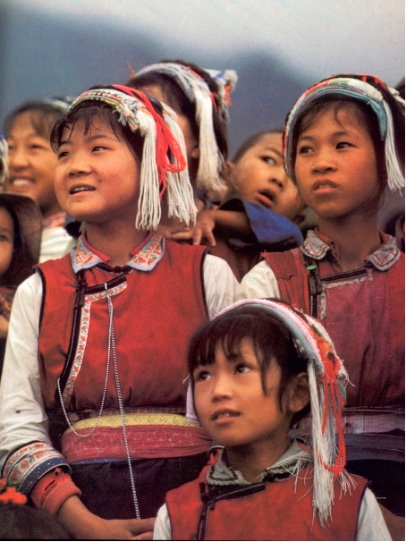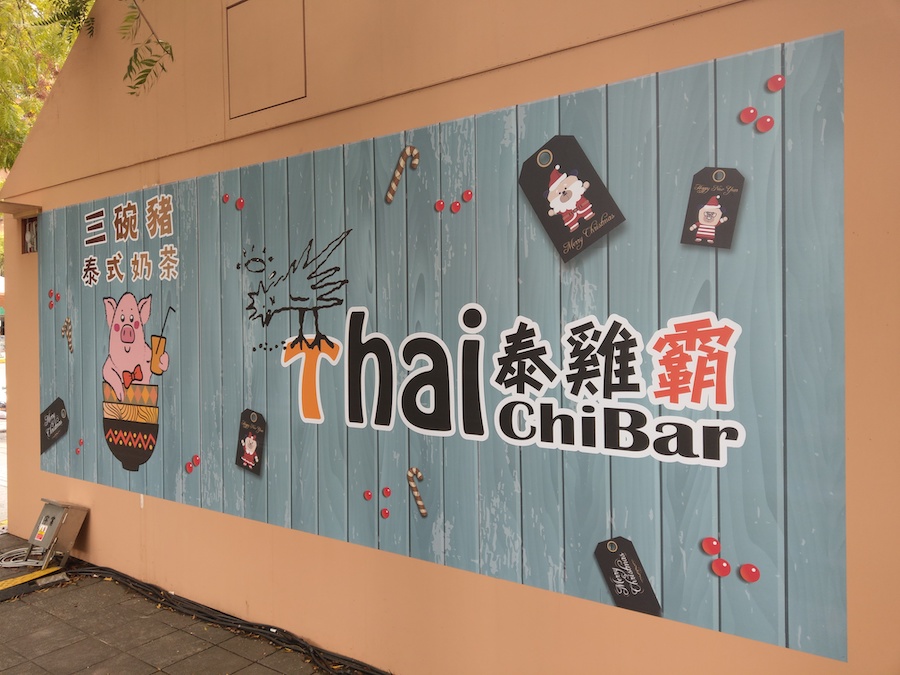Archive for Names
June 18, 2022 @ 5:25 am· Filed by Victor Mair under Borrowing, Names, Transcription, Writing systems
I'm at a big conference on Tang (618-907)-Song (960-1279) transitions that is being held at Princeton University. One of the participants was sporting a badge that announced her name as Ya Zuo. I told her that her name sounded unusual and wondered what kind of name it was. She happily volunteered, "It's Russian!"
I was perplexed, because she didn't look Russian (although appearances can be misleading: I've met Russians who look ethnically Korean, Chinese, Manchurian, etc., and the maternal great-grandfather of the preeminent Russian poet, Alexander Pushkin [1799-1837], was Major-General Abram Petrovich Gannibal, a nobleman of Sub-Saharan African origin). But we are at a conference where everyone is a China specialist, and I had heard Ya Zuo speaking some Mandarin. so I wracked my brain to figure out what characters were used to write her name, and was frustrated when I tried to figure out how it could be Russian.
Read the rest of this entry »
Permalink
May 22, 2022 @ 3:28 pm· Filed by Victor Mair under Ambiguity, Language and the law, Linguistics in the comics, Names, Writing systems
"Baby Pikachu? Japan panel weighs accepting unconventional readings of kanji for names"
KYODO, STAFF REPORT
The Japan Times (May 19, 2022)
What’s in a name? In Japanese, that’s complicated. [VHM: You can say that again! One of the hardest tasks in my graduate training as a Sinologist was learning how to pronounce Japanese proper nouns correctly. This is one of the reasons I wrote the dictionary described in this post.]
An advisory body to the justice minister has compiled a draft proposal on whether and how to accept — and record on the family register — unconventional kanji readings of names for newborns and naturalized citizens. In one cited example of so-called kirakira (sparkly) names, it would be acceptable for the kanji characters 光宙 read as pikachū, which could be a hit for fans of the Pokemon universe.
The proposal is part of the ministry’s push for digitalization of the family register, an effort that would be better facilitated by adding hiragana and katakana readings to kanji names.
Read the rest of this entry »
Permalink
March 3, 2022 @ 9:54 am· Filed by Victor Mair under Names, Phonetics and phonology, Spelling, Topolects, Toponymy, Variation
In studying the history of the Chinese Imperial examination system, I came upon an individual named Stafford Northcote (1818-1887), 1st Earl of Iddesleigh, who was instrumental in devising the British civil service. Naturally, I tried to pronounce the name of the village he was from, but couldn't quite wrap my head and tongue around it. So I decided I'd better do a bit of research on the history of Iddesleigh to see what topolectal gems lay hidden in that perplexing concatenation of six consonants and four vowels.
Read the rest of this entry »
Permalink
March 1, 2022 @ 6:01 pm· Filed by Victor Mair under Language and politics, Language and the military, Names, Orthography, Spelling
[This is a guest post by Nathan Hopson]
Like many around the world, I have been deeply saddened by Putin’s invasion of Ukraine. I have been watching news from around the world, including Japan. In addition to the actual war itself, and to the sometimes inane (studio talking-head) coverage of the war as some kind of horse race, I have been disturbed by the Japanese media’s failure to update the orthography of Ukrainian cities such as the capital, Kyiv.
Not a single domestic news outlet I am aware of―including the public broadcaster, NHK―has dropped the Soviet-era Russian name “Kiev” (キエフ) to replace it with Kyiv. CNN’s Japanese site, for instance, has similarly failed to revise its choice of katakana.
Read the rest of this entry »
Permalink
February 17, 2022 @ 9:21 am· Filed by Victor Mair under Idioms, Language and sports, Names, Pronunciation, Proverbs, Variation
People pronounce my surname all sorts of different ways — Myer, Mare, Meer, Mire, as in Golda Meir, etc., etc., with the number of syllables (one or two), accent, and vowel quality varying almost limitlessly — but I've never once in my life "corrected" anyone, because I think they're all legitimate. Think of the different ways to pronounce Sun Yat-sen's and Chiang Kai-shek's names, and how to pronounce 陈 (Chen, Chin, Chan, Tan).
After all, people in the same family may pronounce their own surname differently, e.g., Boucher ("Butcher, Boochez"), Naquin ("Na-can, Næ-kwin"), and the famous Penn Sinologist Derk Bodde (1909-2003) introduced himself as "Derek Bod", whereas most other people called him "Durk Bod-de").
Read the rest of this entry »
Permalink
February 15, 2022 @ 9:43 pm· Filed by Victor Mair under Language and sports, Language play, Names
In "Fly High, Frog Princess! Well Done, Chen No. 3! The world’s most popular Olympians are household names. But to Chinese fans who delight in creating nicknames, they’re different characters entirely", Andrew Keh and John Liu (NYT, 2/15/22) highlight some of the affectionate monikers that have been applied to athletes at the Beijing Winter Olympics. Here I extract several of the favorites:
Chén Sān 陈三 ("Chen No. 3") = Nathan Chen (figure skater), three-time World champion, three-time Grand Prix Final champion.
[This nickname] requires some understanding of international figure skating history. In the eyes of Chinese skating fans, he is the third prominent skater from North America with the Chinese surname Chen, which, in English, can also be spelled Chin, Chan or Tan, depending on the original dialect. Before him came Tiffany Chin, who was the U.S. national champion in 1985, and Patrick Chan, the 2018 Olympic gold medalist from Canada.
Chen's Chinese name is Chén Wēi 陈巍; some fans call him “Tigger” (Tiàotiào hǔ 跳跳虎), using the Chinese translation for the Winnie the Pooh character.
Read the rest of this entry »
Permalink
February 13, 2022 @ 10:18 am· Filed by Victor Mair under Etymology, Language and food, Language and sports, Names
You'll be hearing a lot of that Cincinnati Bengals chant today.
What does it mean? How did it originate?
To understand the meaning, you have to put it in the context of the whole chant:
"Who dey, who dey, who dey think gonna beat dem Bengals?" Fans then roar: "Nobody!"
So it's a rhetorical question.
Read the rest of this entry »
Permalink
February 10, 2022 @ 10:21 am· Filed by Victor Mair under Language and science, Names, Pronunciation
AntC led me down a deep, dark rabbit hole by asking: "Hi Professor Mair, is the Contributing Writer confused, or is it the interwebs?"
He was prompted to ask that question by having read the following statement in this article, "Orion’s love affair, Shen Xiu’s long-distance friendship on Taiwan’s winter sky", Taiwan News, by P.K. Chen, Contributing Writer (2/8/22):
The Greek constellation Orion is called “Shen Xiu” (參宿, “The Three Stars”) in China; “Shen” or “three” refers to the three stars on Orion’s belt, while “Xiu” or “place for rest” refers to where the moon remains fixed and “rests.”
Trying to figure out the relationships among the names of the constellation and its constituent stars in Greco-Latin and Sinitic nomenclature ate up an entire evening. To start with, there are many possibilities for how to pronounce 參宿, the Chinese equivalent to Orion (constellation name): sānsù (Google Traslate), cānsù (zdic), shēnxiù (Wiktionary). So we've got a lot of variation involving both characters of the term. But that's just the beginning of our attempts to grapple with the language and lore concerning Sinoxenic words for Orion.
Read the rest of this entry »
Permalink
February 1, 2022 @ 8:29 am· Filed by Victor Mair under Language and fashion, Language and politics, Names, Pronunciation, Topolects
Under the rubric, "An Odd Question", Doug Adams (the Tocharianist) asked:
Why do we always refer to Sun Yat-sen (1866-1925) and Chiang Kai-shek (1887-1975) in Cantonese (?) phonological form rather than Mandarin?
Simple reply
Before about 1975, Cantonese was by far the most widespread and prevalent Sinitic language around the world outside of China, and Sun's Cantonese art name, Yat-sen, was so deeply ingrained and familiar in English for decades — both in speech and in writing — that it would have been very difficult to change it to Mandarin Yìxiān 逸仙 ("Liberated Transcendent"). Anyway, he had many other different names for different purposes, and some of them were as popular as Yat-sen, e.g., Chung-shan / Zhongshan, which actually derives from a Japanese pseudonym / nom de guerre (Nakayama Kikori [see below]) given to him by a Japanese friend. Chung-shan / Zhongshan 中山 was / is so widespread in China that his hometown was renamed after it, making Zhongshan one of the few cities in China to be named after a person. Zhongshan is also used as the name of the style of jacket that Sun Yat-sen liked to wear: Zhongshan suit (simplified Chinese: 中山装; traditional Chinese: 中山裝; pinyin: Zhōngshān zhuāng), but in the PRC it came to be known as the Mao suit. (I'm the proud owner of a Zhongshan suit, which I had tailor made in Taipei in 1971.) There are dozens of other things and places called Zhongshan in China, a few of them referring to states from much earlier times that are completely unrelated to Sun Yat-sen / Zhongshan, for which see here.
Read the rest of this entry »
Permalink
January 18, 2022 @ 5:33 pm· Filed by Victor Mair under Etymology, Language and animals, Language and archeology, Language and culture, Language and ethnicity, Language and food, Names
The province of Yunnan in the far south is home to more ethnic minorities and languages than any other part of China (25 out of 56 recognized groups, 38% of the population). The Bai are one of the more unusual groups among them.

Bai children—in Yunnan, China
Read the rest of this entry »
Permalink
December 13, 2021 @ 11:30 pm· Filed by Victor Mair under Language and literature, Names, Phonetics and phonology
[The first part of this post is from S. Robert Ramsey.]
Ceremony for the unveiling of a bust of the poet on May 18, 2011 in downtown Seoul:

Read the rest of this entry »
Permalink
December 6, 2021 @ 9:01 pm· Filed by Victor Mair under Names, Topolects
The following article is a lucid and linguistically sound discussion concerning the nomenclature for the main non-Mandarin language of Taiwan:
"The Problem of Naming the Most Popular Non-Mandarin Language Used in Taiwan," 6 December 2021", by Hung-yi Chien.
Considering the balanced and fair presentation of the article overall, one wonders why it scrupulously avoids one of the most common ways of referring to the language in question, namely, "Hoklo". For some reasons why people might wish to refrain from referring to the language in question as "Hoklo", see the very extensive presentation here.
Read the rest of this entry »
Permalink
December 2, 2021 @ 1:06 am· Filed by Victor Mair under Bilingualism, Language and advertising, Language and food, Multilingualism, Names
From Mark Swofford:
The back of a restaurant stand going up in front of the Banqiao train station as part of a temporary market for the Christmas season.

Read the rest of this entry »
Permalink


